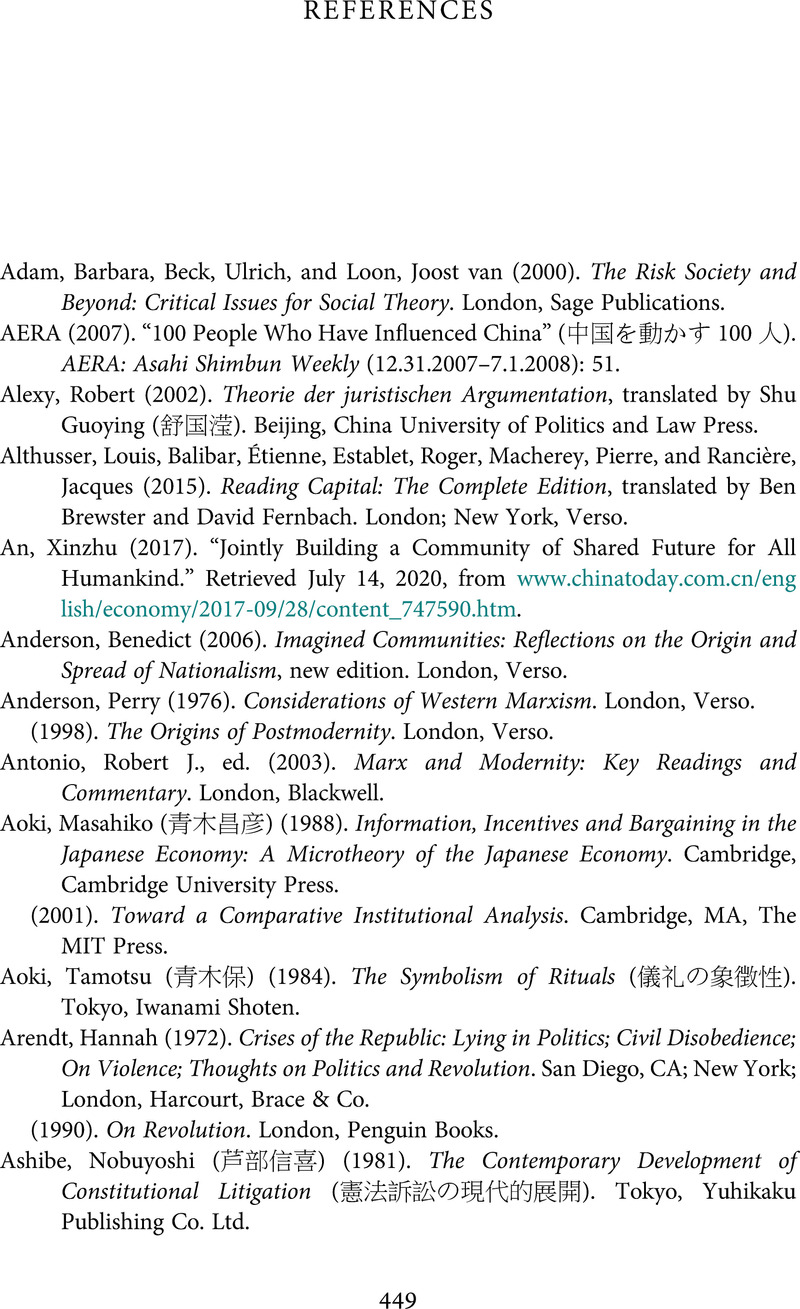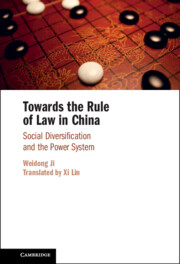Book contents
- Toward the Rule of Law in China
- Epigraph
- Toward the Rule of Law in China
- Copyright page
- Contents
- Foreword
- Acknowledgments
- Translator’s Note
- Abbreviations
- Introduction
- 1 The Conception of Law in Traditional China
- 2 The Essence of Modern Rule of Law
- 3 The Rule of Law: Contemporary Challenges and Paradigmatic Innovation
- 4 A Rule-of-Law Democracy (Rechtsdemokratie): Social Diversification and Reconstructing the System of Authority
- 5 Judicial Reform in China: The Status Quo and Future Directions
- 6 Reconstructing Legal Ideology
- Postscript
- Book part
- References
- Index
- References
References
Published online by Cambridge University Press: 24 February 2022
- Toward the Rule of Law in China
- Epigraph
- Toward the Rule of Law in China
- Copyright page
- Contents
- Foreword
- Acknowledgments
- Translator’s Note
- Abbreviations
- Introduction
- 1 The Conception of Law in Traditional China
- 2 The Essence of Modern Rule of Law
- 3 The Rule of Law: Contemporary Challenges and Paradigmatic Innovation
- 4 A Rule-of-Law Democracy (Rechtsdemokratie): Social Diversification and Reconstructing the System of Authority
- 5 Judicial Reform in China: The Status Quo and Future Directions
- 6 Reconstructing Legal Ideology
- Postscript
- Book part
- References
- Index
- References
Summary

- Type
- Chapter
- Information
- Towards the Rule of Law in ChinaSocial Diversification and the Power System, pp. 449 - 494Publisher: Cambridge University PressPrint publication year: 2022



